The Grand Budapest Hotel (2014) review: Losing my Wes Anderson-ginity.
All the pictures in this post were taken directly from the movie by me, the score was taken from my Letterboxd Account.

ENGLISH
For a long time I had wanted to start delving into the filmography of Wes Anderson, a renowned filmmaker who has recently been on everyone's lips due to the premiere of Asteroid City, as well as the new trend of mimicking his picturesque asymmetrical style with the use of artificial intelligence.
According to what I've read around, Asteroid City is a lousy starting point for those of us who don't know the director's work, and although I still plan to give it a try in theaters in my country before they decide to take it off in a couple of days , I thought it would be smarter to start with The Grand Budapest Hotel, a film that for many represents all the Anderson's virtues.
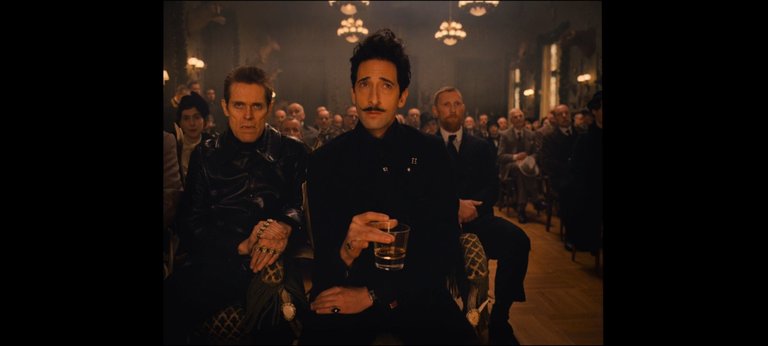
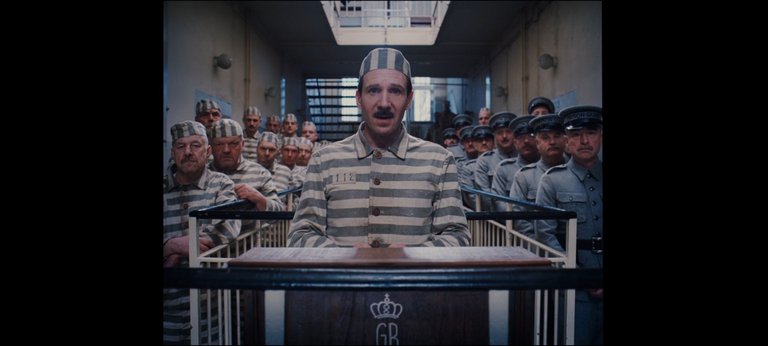
It's not hard to understand why, from the use of the metanarrative as a device (A story, within a story, within a story), to the brilliant intergenerational star-studded cast, The Grand Budapest Hotel is a film that mixes the perfection of style and substance, telling a relatively simple story in a way that allows all the characters to parade, immersing us in a world of pastel colors where every physical element tells a story, and drama and comedy embrace each other with passion for just over an hour and a half.
In TGBH we meet the "concierge" Gustave H, an eccentric man who feels a lot of love for his work and who ends up wrongly accused of the murder of "Madame D.", the owner of this establishment.
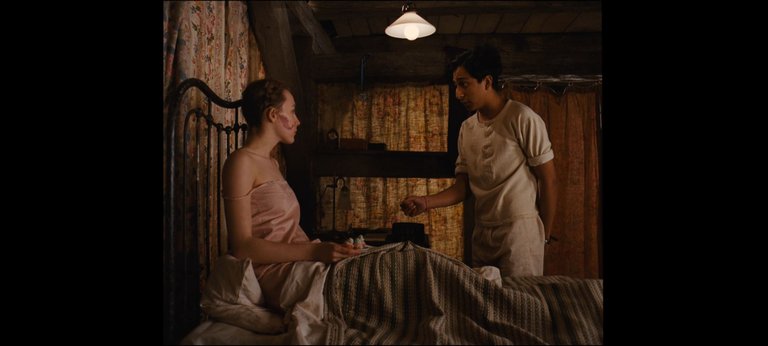
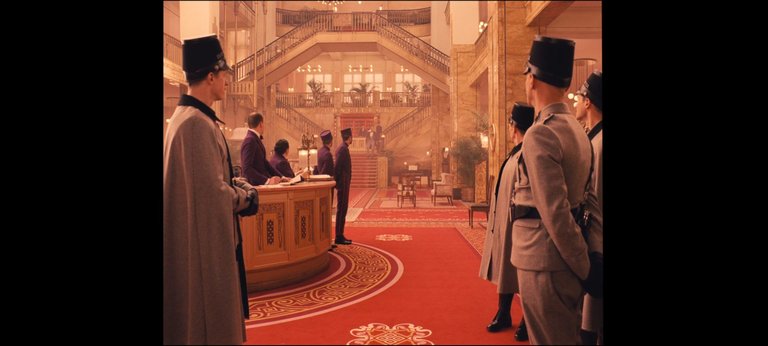
Although this premise may make us believe that we are facing a traditional thriller, the reality could not be further from it. Although most of the footage is dedicated to seeing how Gustave (Played by Ralph Fiennes) tries to clean up his reputation while fleeing from justice (All along with his employee Zero, the iconic lobby boy played by Tony Revolori) , the unique way in which all these events are shown sets it apart from anything else we have seen before, something commendable considering the dozens and dozens of references that ended up forging the style of Wes Anderson.
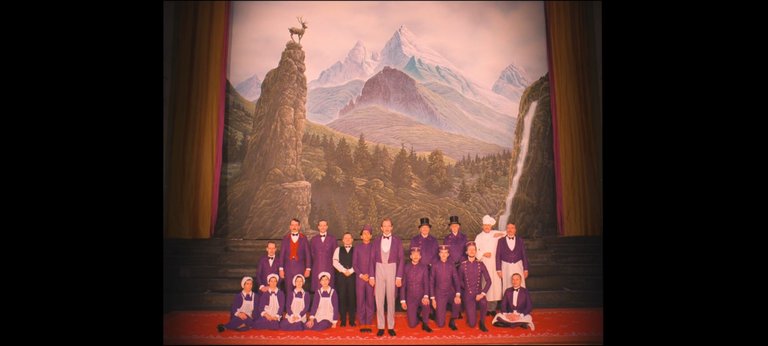
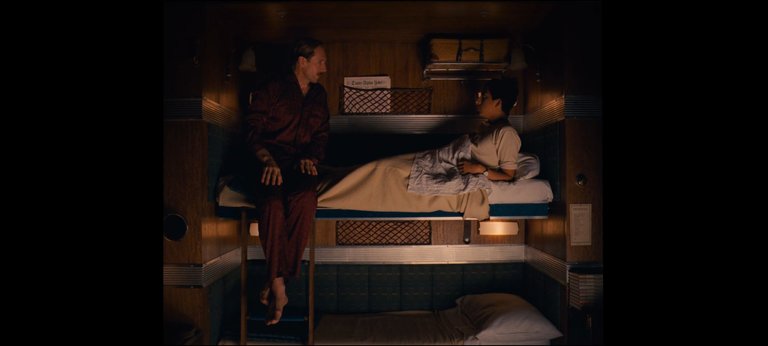
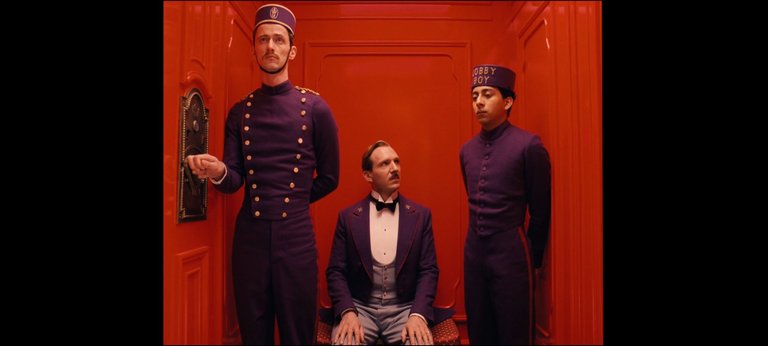
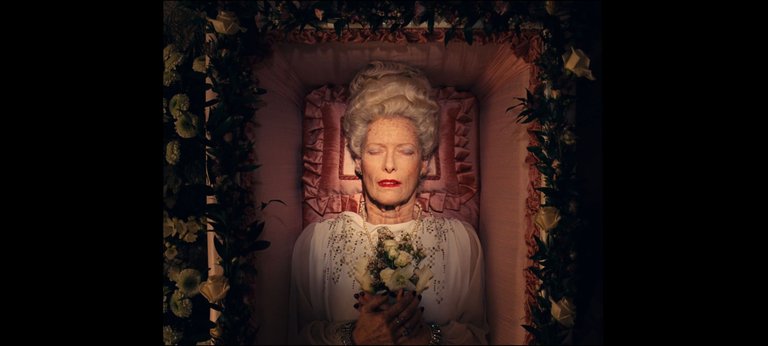
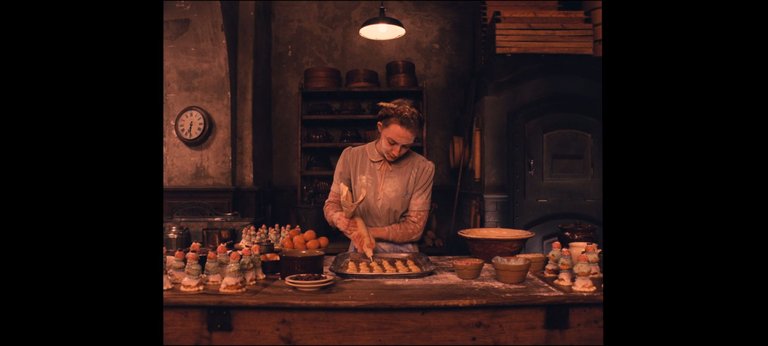
The Grand Budapest Hotel is an amalgamation of well-implemented aspects, each performance, no matter how short or long, remains engraved in our retinas and ears, the music is stupendous and each frame is constructed with surgical touch to take advantage of the full potential of the image.
Brilliant.
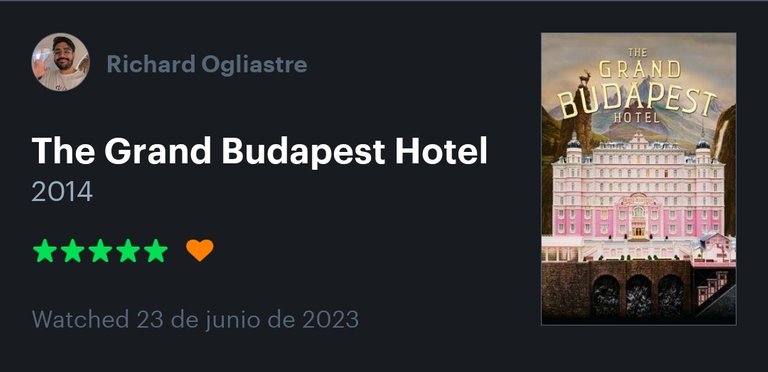

Todas las imágenes en este post fueron tomadas directamente desde la película por mi, el puntaje de la película fue tomado de mi cuenta de Letterboxd.

ESPAÑOL
Desde hace tiempo había querido empezar a adentrarme en la filmografía de Wes Anderson, un reconocido cineasta que recientemente ha estado en boca de todos debido al estreno de Asteroid City, así como la nueva tendencia de mimicar su pintoresco estilo asimétrico con el uso de inteligencia artificial.
Según lo que he leído por ahí Asteroid City es un punto de partida pésimo para aquellos que desconocemos la obra del director, y, aunque sigo planeando darle una oportunidad en los cines de mi país antes de que decidan sacarla de cartelera en un par de días, pensé que sería más inteligente arrancar con The Grand Budapest Hotel, una película que para muchos Representa todas las virtudes de Anderson.


No es difícil entender por qué, desde el uso de la metanarrativa como recurso (Una historia, dentro de una historia, dentro de una historia), hasta el brillante cast plagado de estrellas intergeneracional, The Grand Budapest Hotel es un filme que mezcla a la perfección el estilo y la sustancia, narrando una historia relativamente simple en una forma en la que permite que todos los personajes desfilen, sumergiendonos en un mundo de colores pastel en dónde cada elemento físico cuenta una historia, y el drama y la comedia se abrazan con pasión durante poco más de una hora y media de duración.
En TGBH conocemos a el "concierge" Gustave H, un hombre excéntrico que siente una gran cantidad de amor por su trabajo y que termina viéndose envuelto en el asesinato de "Madame D.", La dueña de este establecimiento.


Si bien esta premisa puede hacernos creer que estamos ante un thriller tradicional, la realidad no podía estar más alejada de ello. Si bien la mayor parte del metraje se dedica a ver cómo Gustave (Interpretado por Ralph Fiennes) trata de limpiar su reputación al mismo tiempo en que huye de la justicia (Todo junto a su empleado Zero, el icónico lobby boy interpretado por Tony Revolori), la forma única en la que se muestran todos estos eventos lo alejan de cualquier otra cosa que hayamos visto antes, algo loable considerando las decenas y decenas de referencias que terminaron forjando el estilo de Wes Anderson.





The Grand Budapest Hotel es una amalgama de aspectos bien implementados, cada performance por corto o extenso que sea se queda grabado en nuestras retinas y oídos, la música es estupenda y cada fotograma está construído con tacto quirúrgico para aprovechar todo el potencial de la imágen.
Brillante.


Twitter/Instagram/Letterbox: Alxxssss

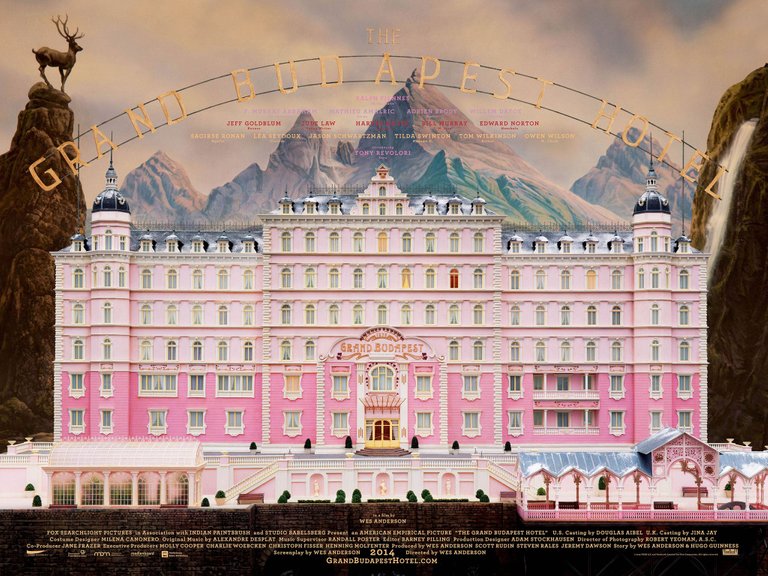
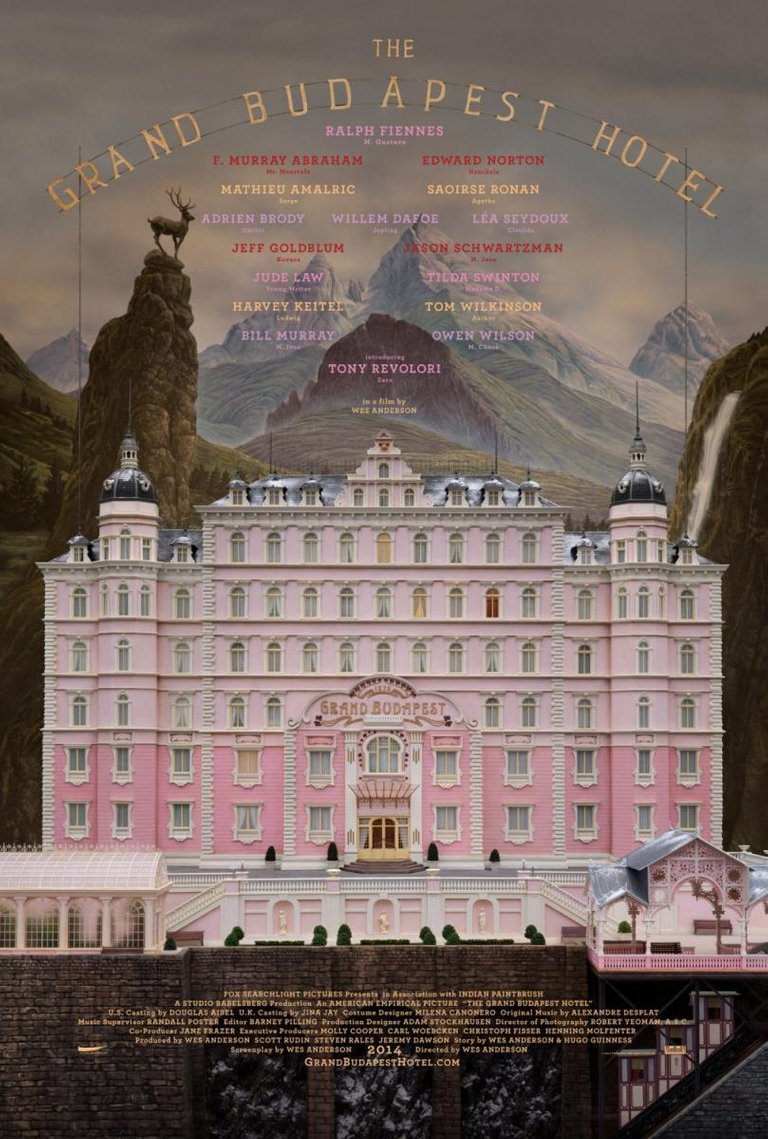
Siempre me ha llamado la atención las tramas que poseen un argumento fortificado y donde hay un asesino. Por alguna razón te atrae el hecho de descubrir quién es el culpable.
Si! Aunque aquí el enfoque es un poco más humorístico, los misterios de ese tipo son geniales.
The Grand Budapest Hotel is another one of my favorite movies, it makes no sense how much I love this movie, it has an amazing plot, music, art, actors, for me it's one of Wes Anderson's best, who literally makes magic with his works. And I just found out from your post that they released Asteroid City, I had no idea about another movie after The french dispatch, so thank you :)
Great post and keep sharing this kind of content.....